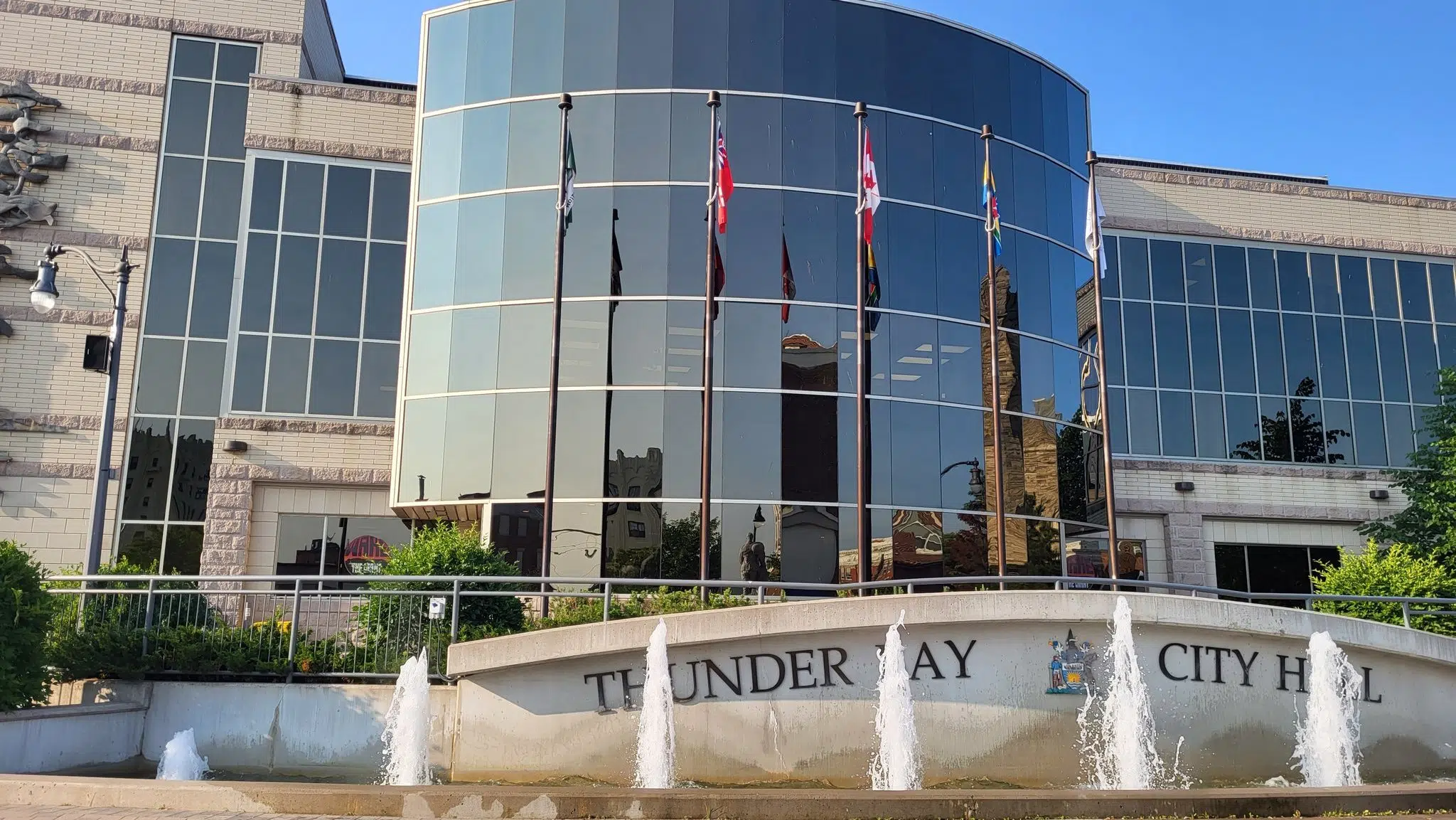
Thunder Bay City Hall (File Photo/Acadia Broadcasting)
Thunder Bay is helping a Northern First Nation that is dealing with issues at their water plant.
Roughly 200 evacuees from Kashechewan First Nation are being sent to the city.
The evacuees are expected to arrive on Saturday or Sunday.
“We are happy to extend our support and solidarity to the Kashechewan community during this challenging time,” said Mayor Ken Boshcoff. “Thunder Bay is committed to providing a safe and welcoming environment for those that have to be evacuated and will work closely with all partners to ensure their needs are met.”
The community started dealing with issues with their water treatment plan on December 4.
The system got clogged leading to contamination in the water being produced.
A boil water advisory was put in place as a response.
There are also issues with the water distribution system as there are a few leaks on the line, but it is not clear if the issue is connected to the water treatment plant.
Water has been sent to the community, but there were still concerns for babies and elders with health conditions.
“This is why the chief has called for evacuation,” explained the Minister for Indigenous Services Canada, Patty Hadju. “There’s still challenges with the water distribution, there’s pumps that are not performing at the rate that they should be performing, there’s clean up happening around some of the spillages that have happened as a result of the work there.
As of Wednesday, the operator was still reporting that there is mud and clay present with not enough water to flush the system.
“Indigenous Services Canada is working with the community, providing the technical support and the financial support that they need,” added Hadju. “All emergencies in these cases are covered by the Emergency Management Program of Indigenous Services Canada, so evacuees the cost of evacuees the support that will be required for evacuees and of course, the cost to the city in terms of any extra expenses they might incur around accommodation and those kinds of things.”
Moving forward it is about getting boots on the ground to help fix the problem.
“When a crisis like this happens in a remote community, it’s not as easy as driving a crew up to Kashechewan to fix it,” explained Hadju. “It is a huge, choreographed event, where people need to be flown in, you know, expertise needs to be brought in. Operators can often operate the plant, but they don’t necessarily have the skills to fix the plant.”
The evacuees are expected to be in the city for roughly two weeks, but the repairs could extend through the holidays depending on how long they take.




